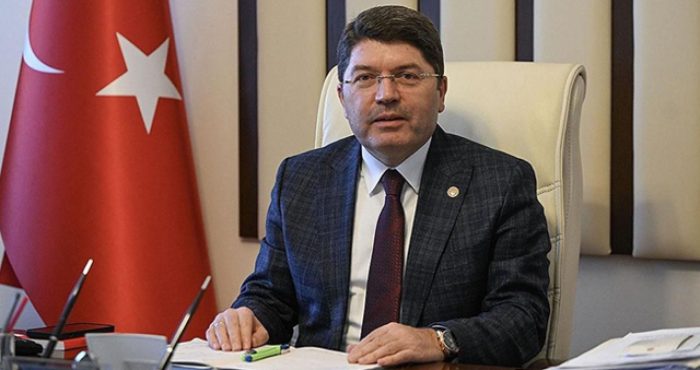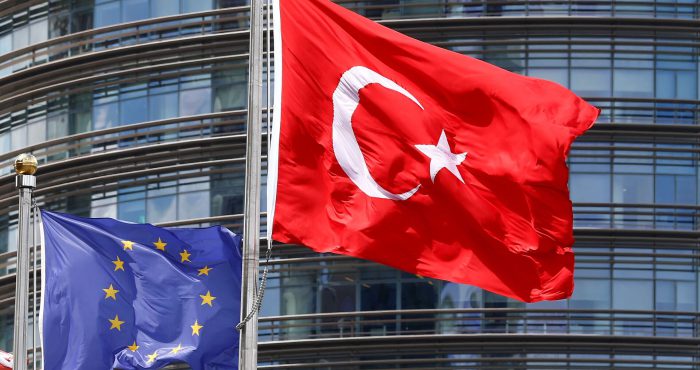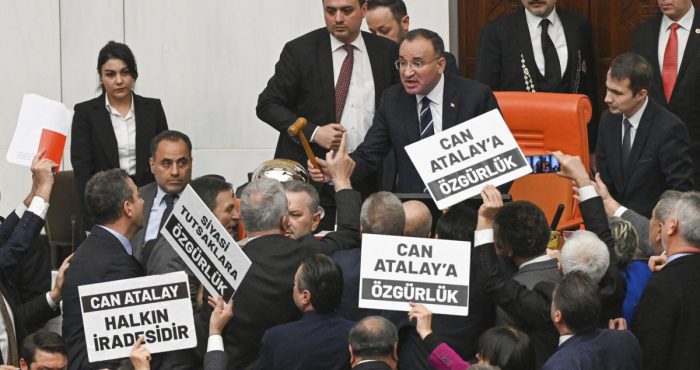The business world, even those provide a life-long support to Recep Tayyip Erdoğan though crushed by the surging inflation pinned their hopes on Türkiye’s new appointees, Treasury and Finance Minister Mehmet Şimşek and CBRT Governor Hafize Gaye Erkan, as the saviour of country’s economy from its deep-running issues.
The reason for this hope was the expectation of the Central Bank, with the new appointments, to abandon its 27-month policy to keep policy rates stagnating, a policy stemming from President Recep Tayyip Erdoğan’s long-standing insistence on low-rate stimulus monetary policy.
To what degree the Central Bank’s decision to raise rates from 8.5 percent to 15 percent will satisfy the ones with high hopes will be better understood following weeks.
And yet it appears that Erdoğan’s unorthodox economic beliefs concerning interest rates will continue to wield significant influence over the CBRT other areas of competence.
Unavoidable contradictions of Erdoğan’s beliefs
The policy moves available to Şimşek to take in his efforts to correct the economy are limited on one side by the local elections to be held on May 31 2024 and on the other by Erdoğan’s efforts to garner the conservative vote by way of his anti-interest rhetoric.
Şimşek can neither rely on rate rises to right the economy, nor can the economy be righted without them. Erdoğan’s “interest rates cause inflation” fixation will continue to alienate investors, from the West or Gulf, from fixed investment, eroding foreign currency reserves and widening the current account deficit further still.
Economists are of the mind that reasonable and evidence based decisions taken now, might save the economy, whereas delaying them until after next year’s election will spell catastrophe. Indeed, Mehmet Şimşek has said “…if only the local elections had been held yesterday.”
Interest rates are both the cause and solution
Just as Erdoğan’s beliefs about interest rates lie at the heart of the economy’s problems, so too are they the key to the “rational” solutions Şimşek is expected to bring. It is clear that the best course of action the Central Bank can take to increase domestic savings denominated in Turkish lira and encourage repatriations is to increase the policy rate. It is equally clear that this will not be enough.
The condition of success is the inculcation of trust that the course correction to be made is sustainable and not just a one-off occurrence. All this must be balanced against the risk of the economy falling into a recession. It is against this backdrop that financial institutions and the business world are working to anticipate future rate rises.
And yet, they are all rightfully expending more effort trying to scry how long Erdoğan will keep Şimşek in his position, than they are thinking about interest rates. Nobody expects him to start sharing power.
The fault lies with Erdoğan’s interest rate beliefs
Everyone knows Şimşek cannot raise rates without Erdoğan’s consent and permission. The consequences of a rise will lead to Erdoğan’s self-denial, and to him shooting himself in the foot with the negative consequences that would follow. He made as much clear when he said: “I haven’t changed, I think the same.”
Şimşek and Erkan are faced with the unenviable situation of using a double-edged sword to manoeuvre out of between a rock and a hard place.
It remains then that the main obstacle to a return to sustainable rational economic policy is Erdoğan’s belief and stubbornness when it comes to interest rates. Erdoğan explains his steadfastness therein by claiming it is a “nas” or non-derogable religious provision. He is actually not alone in this belief; a large portion of his conservative voter base shares this stance.
Erdoğan and his followers must be educated about and persuaded of the difference between modern interest and the “riba” (type of interest forbidden in the Quran) of much earlier times and about the use of interest rates in rational policymaking.
Essentially religious rule of a secular state
The other issue at hand here that must be underlined is this: we must avoid being caught up in the flawed and imprecise machinations that enable decisions to be made on the basis of religious belief and dogmas such as those summarised by Erdoğan as “nas”. Trust that sound, evidence based decisions will be made must be built, and a the legal framework that will enable this must be strengthened, including the revision of the Presidency’s powers with a mind to more proficient administration.
The President’s powers are broad enough to bring about much evil; there are nearly no precautions taken against their misuse. Needless to say the replacement of Sahap Kavcioglu with Hafize Gaye Erkan, has served only to locate the central state apparatus on Erdoğan’s tongue, and is very far from reassuring to the market.
Erdoğan and his unbridled powers
In essence Erdoğan’s thoughts on interest rates are the root of Turkey’s current economic woes. The methods he resorts to under his beliefs and his extraordinary powers have the capacity to reach beyond the economic sphere and threaten the very future of the country.
Measures must be taken to limit Erdoğan’s powers to their ordinary boundaries according to their frame of application and purpose if Şimşek and Erkan are to build any trust with the markets. To this end the president’s powers over the Turkish central bank must be curtailed or removed completely.
It is a necessity that open and clear legislation must be passed to end the influence of Erdoğan, Şimşek, or any other executive organ over the central bank and secure its complete independence.
Erdoğan has cast the parliament aside
President Erdoğan must at once repair the damage done with his pen-stroke retraction from the Istanbul Agreement. This act of his, an open letter to the international community stating “Only my word goes in Turkey, none other holds sway.” Is one with consequences much more serious than his substitution of another central bank governor.
The executive, represented as it is in the presidency has counted the legislative, likewise represented in the Grand National Assembly of Türkiye (GNA), for nothing. In a flash, it voided the GNA’s legislation with a single signature. That this usurpation of the legislature was rubber-stamped by the Council of State, consisting of members appointed by the Judges and Prosecutors Council entirely controlled by Erdoğan, only makes the matter worse.
The reasoning for the Council of State’s approval lacks the persuasive quality of deep knowledge and experience of domestic and international law. Indeed, while judgments that lack the sufficient reason to back them up may exist as a matter of law, they do not in fact represent any judgment at all. Instead, they debase judicial institutions and savage trust in the law.
Erdoğan’s dangerous Council of State visa
The stamp of approval given to the President’s retraction from the Istanbul Agreement by decree raises questions surrounding issues of importance to Turkey’s national security and survival. It establishes a dangerous precedent that President Erdoğan could use to withdraw from the United Nations, NATO, or the Council of Europe to name a few. The Council of State, the body responsible for holding him to accountable, has shown that they will not stand against such actions.
The Dangerous Results of the 2017 Constitution
It is clear from the removal of the supposedly independent central bank’s governors, the withdrawal from the Istanbul Agreement, and the rejection of the case for its annulment before the Council of State that the 2017 changes to the Constitution made under a state of emergency without sufficient discussion or amendment, have brought the country to a cliff edge not only in the economic sphere, but also when it comes to national security.
The concentration of such broad powers in a single person under the Presidency may yet morph into a threat to our national security and survival.
God forbid, Erdoğan may inadvertently lead the country to its doom as erstwhile pilot of a Germanwings flight did his plane and its passengers. Needless to say he doesn’t lack the powers to do so. A country’s road to ruin may be so short as to render irrelevant his patriotism, experience, intelligence, or power.
For these reasons, checks and balances must be introduced on his authority and powers.
Translated by Ediz Gün




